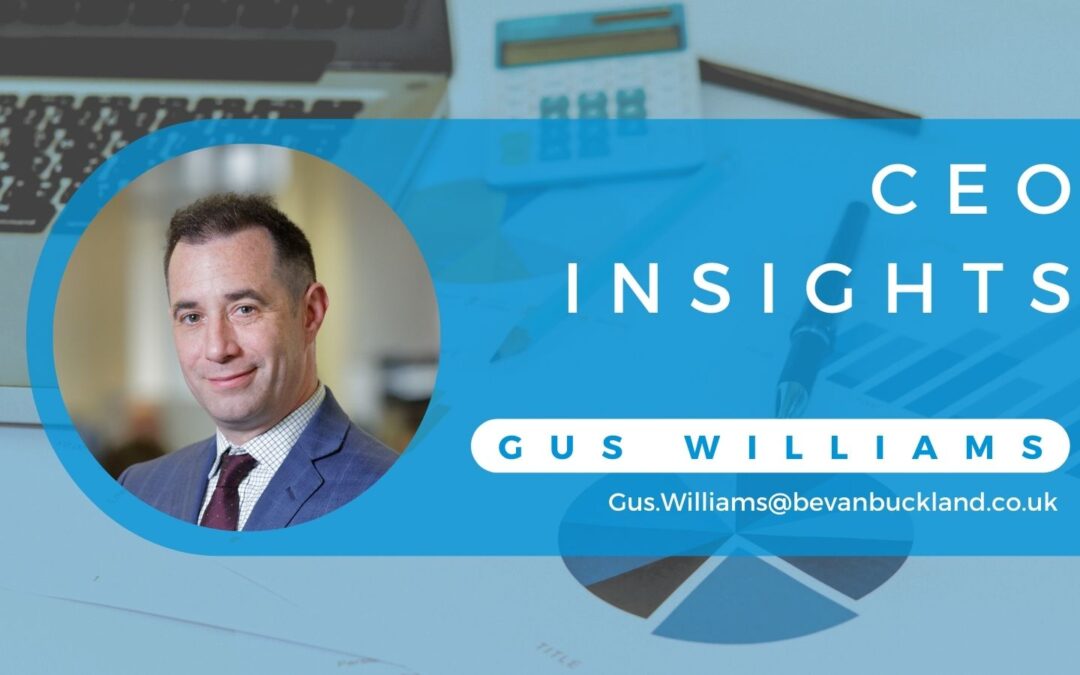Planning retirement
Most people recognise that planning retirement does not look as healthy as they did a decade ago. Stock market collapses have destroyed most people’s compounding calculations while low interest rates are reflected in low annuity rates which continue to be adjusted downward to reflect higher life expectancy. Against this background, how do you plan to have a ‘comfortable’ financial retirement?
Is the state pension enough?
Even if it is not currently top of your agenda, being able to retire when and how you would like, is sooner or later likely to be one of your most important financial objectives. But achieving this goal takes planning and perseverance. Unless you are in the fortunate position of having a final-salary pension scheme which is not underfunded you will almost certainly need to augment your state pension. You could spend a third of your life in retirement. Will you find those years the golden times we all dream of, or a constant struggle to pay the bills?
If you are in receipt of the old state pension then this is worth about £6,718 or, if you receive the new state pension it is worth almost £8,767 at current rates, assuming you have a full NICs record.
For those yet to reach state pension age this requires 35 years’ contributions. If you have not yet retired, we can help you check your record and see if any gaps can be filled. A review of your state pension entitlement will also indicate what you may expect to receive as state second pension, SERPS and graduated pension.
The state pension entitlement dates are changing. You can check the age which you will be entitled to the state pension using this calculator.
The Government has announced that the state pension will in future increase by the highest of price inflation, earnings inflation and 2.5%.
According to government estimates, the gap between how much people are saving and how much they need to save to ensure a comfortable retirement is over £60 billion. It believes that 13 million people – nearly half the working population – are not saving enough for their retirement.
Lifetime savings limits
The rules place an overall lifetime limit on tax-advantaged pension funds of £1.055m.
There is a tax charge where the fund value is in excess of the limit and for excess contributions in a year over the annual limit, which is now £40,000 (or higher if there is unused allowance in the previous 3 years).
| Tax year 2019/20 | |
| Lifetime allowance | £1.055m |
| Annual amount (input amount) | £40,000* |
| Money purchase annual allowance | £4,000 |
| Individuals | £3,600 or 100% of net relevant earnings to £40,000* |
| Employers | £40,000** less employee contributions |
* This amount may increase if there are unused allowances from the previous three years. However, it reduces to £4,000 if the drawdown of pension rights are exercised.
** Plus unutilised allowances from the 3 previous years. Money purchase annual allowance may be reduced to £4,000 if flexible benefits taken.
The annual allowance for those earning above £150,000 is reduced on a tapering basis so that it reduces to £10,000 for those earning above £210,000. For every £2 of income above £150,000, an individual’s annual allowance will reduce by £1. The income for this purpose is the total annual income plus any employer pension contributions.
Tapering only applies if the taxpayer’s income excluding employer pension contributions exceeds £110,000. If you contribute more than £40,000 this year to your pension, you may be able to benefit from unused relief in the preceding three years. We can check this for you.
Changes to the periods for which the annual allowance is tested in 2015/16 may make this issue a little more complicated than previously.
Planning retirement strategy
As well as your age, your retirement planning strategy will be determined by a number of factors:
Is there a company pension scheme?
Are you self-employed?
How old are you?
How much can you invest for retirement?
How much state pension will you receive?
For a forecast of your state pension, go to your personal tax account. If you have not enrolled for this service it is very simple, requiring only a Government Gateway login, and some verification steps the first time you login.
You can estimate your post-retirement living expenses at roughly 60-80% of your current living expenses. Studies have shown that, comparing people aged 45-54 and those aged 65 or more, the average reduction in expenses is:
| Personal care, heat and light and food | 35% |
| Housing and furnishings | 39% |
| Entertainment | 50% |
| Clothing | 56% |
| Insurance | 85% |
| Education | 88% |
While the above table represents an average some other questions may assist in helping you calculate what income you might need in retirement.
Will your car costs now be payable by you personally instead of by the business?
What additional personal costs will you incur? e.g. holidays
Will your hobbies cost you money, or maybe earn some income for you?
What family costs might you still incur? e.g. weddings, house deposits, grandchildren
Will you continue to save?
Company pensions
There are two kinds of company pension scheme, into which you and your employer may make contributions. A final salary scheme pays a retirement income related to the amount you are earning when you stop work, while a money purchase scheme instead reflects the amount invested and the underlying investment fund performance. In both cases, you will have access to tax free cash as well as to the actual pension.
Falling markets have taken their toll on pension funds. Losing the effect of the compounding of investment growth – coupled with much lower annuity rates – has resulted in many final salary schemes losing value and as a consequence being underfunded. This has led to the decision to close them to new entrants, or even to offer alternative pension arrangements to existing members. As a consequence where companies now provide company pensions these are now almost entirely based on ‘money purchase’ arrangements, under which no guarantee of the eventual pension available is made.
Those already in company pension schemes should be aware that the rate at which contributions can be made by the member is now limited to the greater of £3,600 and total UK relevant earnings, subject to scheme rules. Where your employer contributes on your behalf there is no earnings related limit, and only the annual limit applies.
Private pensions
If you are not in a company scheme, you should make your own arrangements, since relying on the state pension is already unrealistic, and will become more so with each passing year.
Personal pensions
Investment in personal pensions is limited to the greater of £3,600 and the amount of your UK relevant earnings, but subject to the £40,000 annual allowance and any unused allowance from the previous three years in all years except the year in which you retire.
SIPPs
In response to poor performances from pension fund managers, some retirement savers have switched their pension savings into Self Invested Personal Pension schemes (SIPPs) – a form of personal pension plan which gives the investor much more influence over how the funds are invested.
Stakeholder pensions
Stakeholder pension premiums are subject to a minimum £20 investment and a 1.5% ceiling on charges for the first ten years and then 1% thereafter. Premiums of up to £3,600 before tax relief (£2,880 net) can be paid each year, regardless of earnings. Additional premiums are subject to the same rules as for personal pension policies.
Stakeholder premiums can be paid on behalf of another person – for example, by a grandparent for an infant grandchild, and are an excellent way of starting your children on a pension’s savings habit. However, the higher rates of tax relief will not be available in this case.
Auto-enrolment
All employers, without exception other than a director-only company, are required to provide a pension arrangement to staff and enrol them in the workplace pension scheme if their earnings exceed £10,000 (subject to age limits).
The employer must make minimum contributions to the arrangement, and also notify staff earning below the limit that they can opt into the pension arrangement. There are hefty penalties if employers fail to abide by the law. The rate of minimum employer contributions is 3% from April 2019.
Your home as a source of finance?
Although they might not be suitable for everyone, there are at least two ways to use your home to boost your retirement finances. First is down-sizing – selling your current home and buying something cheaper to release value now tied up in your property for other purposes. If you wish to continue living in the same property, ‘equity release’ might be something to consider. There is more than one form of equity release. Equity release will not suit all families, and you need to discuss all of the implications with us and your other financial advisers.
Start now
Use our Savings Calculator to find out how much your savings might be in the future.
Although it’s never too late planning retirement, the earlier you start, the more chance you will have to accumulate the funds you will need.
In the current climate, whether you choose to focus on pension savings, alternative savings products, or a combination of both, your savings will need time to grow.
To create a retirement fund of about £225,000 over 25 years, you would have to save about £7,000 every year, assuming approximately 2% growth. Saved in an ISA, the cost over 25 years would be £175,000, compared with £105,000 if you obtained 40% tax relief on your pension policy premiums.
On the other hand, at retirement, the pension policy would provide a tax free lump sum and an income, while the funds in the ISA would be available to draw, free of tax, immediately (or they can be drawn before retirement, subject to plan rules).
Partly influenced by poor returns from pension policies and adverse publicity regarding pension companies coupled with lower annuity rates, many people are now spreading their savings between company or personal pension schemes and other forms of investment.
Recent posts

CEO Insights: A week is a long time in Welsh Politics
Vaughan Gething's resignation as First Minister in Wales, just a week after first past the post...

CEO Insights: How are General Elections won and lost?
We will be bombarded with daily news and comment on policy and personality over the next few...

CEO Insights: AI – Will the world’s newest technology transform the world’s oldest profession(s)?
Last month, I commented on how self-driving was being overvalued. That got me thinking about where...










